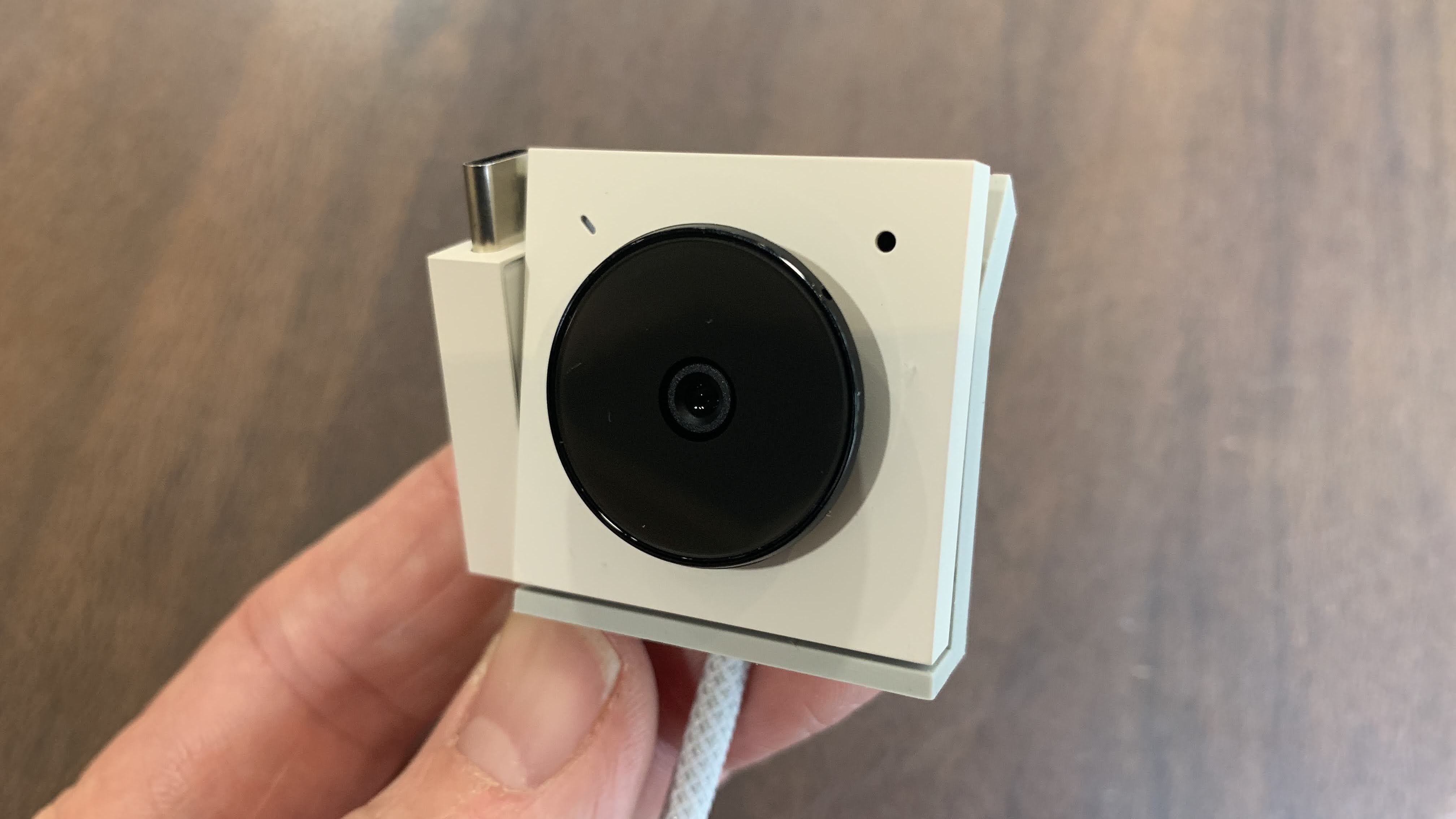
Opal Tadpole webcam: Two-minute review
The Opal Tadpole is an incredibly capable webcam that is well-engineered and beautifully designed. The video quality is respectable, but my lasting impression of the Tadpole was not to do with the sensor's capabilities but rather that it just felt really good to use. All of this is due to the thoughtful and well-implemented design, as well as the minimalist feature set. This should come as no surprise, considering the Opal co-team has history with Google, Uber, and Jump.
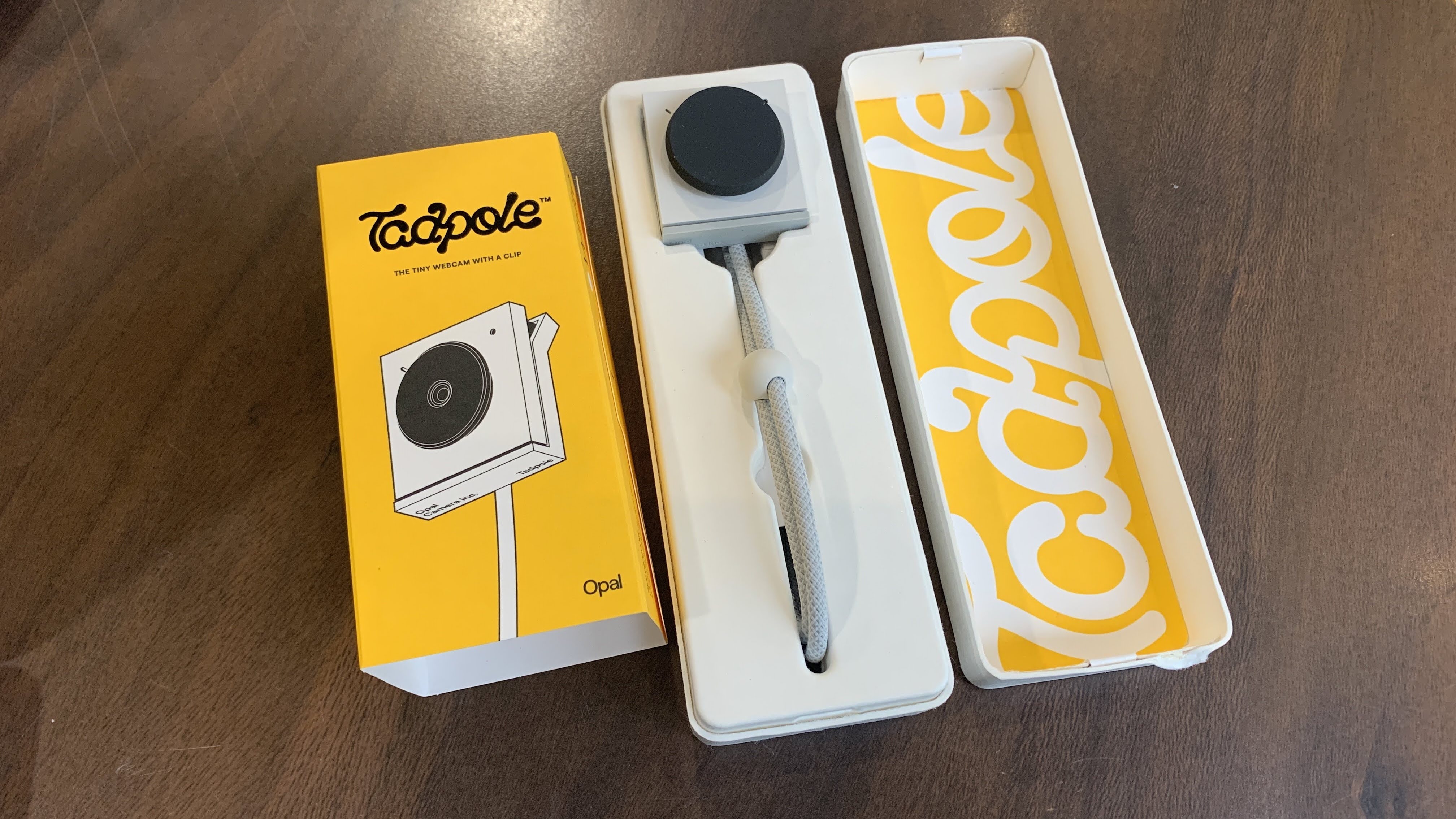
The Tadpole, as the name suggests, is small. At only 3.5 x 4.5 cm, the unit itself sits neatly and unobtrusively at the top of any laptop screen. When I first started using it, a few people initially asked me what on earth it was, but after a while, the device just faded into the background. So, if you’re after one of the tiniest webcams on the market at the moment, then your search is over.
The small size results in an overall weight of less than 50 grams, so there’s no chance of any unnecessary strain being applied to your screen hinge. This also makes it a dream to transport around, but more on that later.
Rather than a magnetic mount, the Opal team has opted for an adjustable clip. This means that the whole unit is either on or off, rather than having a permanently located mount. I personally prefer this implementation, because there is no chance of me losing any individual parts and thereby rendering the whole piece of kit useless.
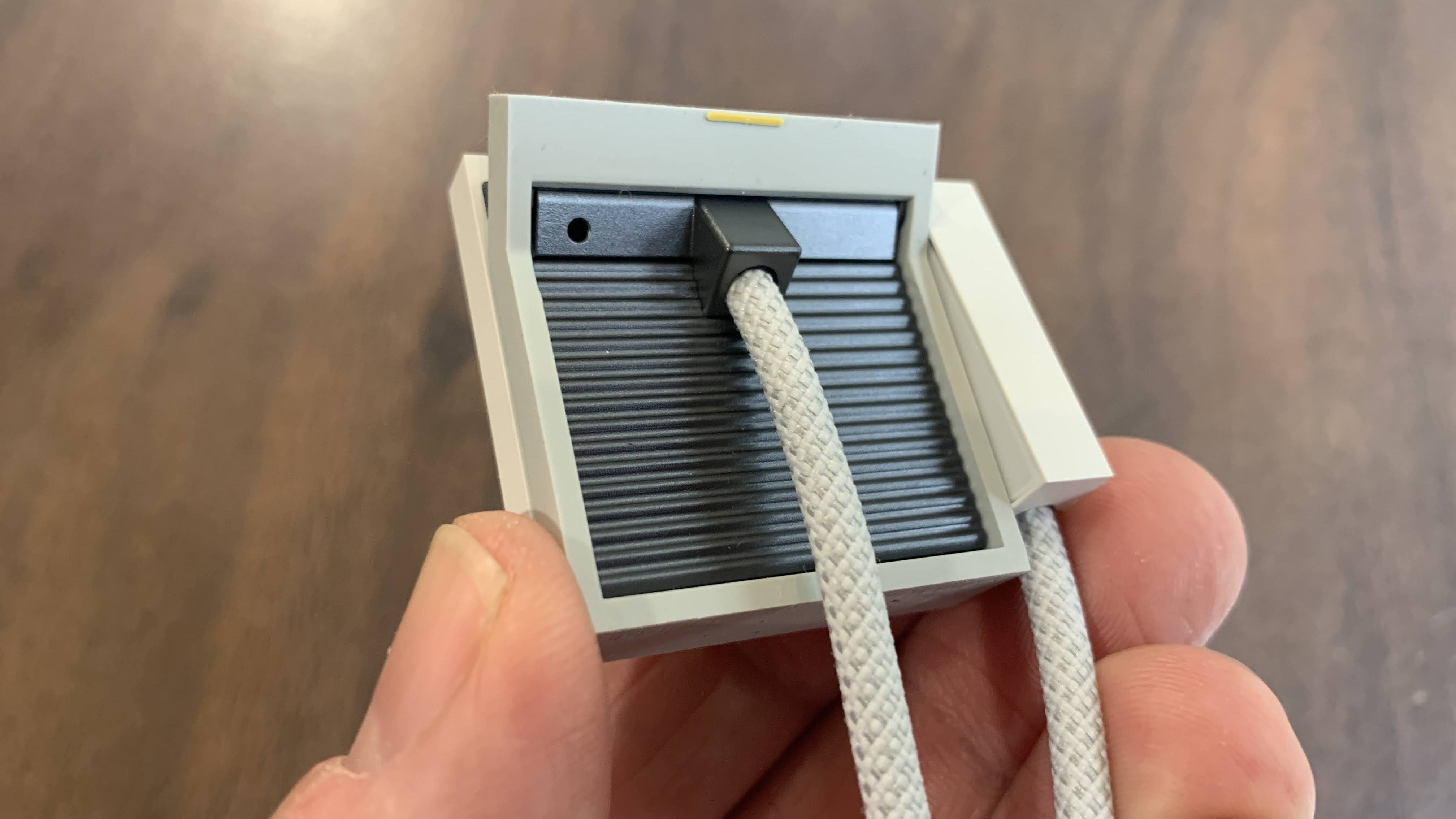
The range of the clip is 35 degrees, which was more than adequate for my Macbook Pro and is indeed perfect for almost all laptops. One of the concerns I initially had was about damaging my laptop. I didn’t want to scratch my metal back or crack the glass of the screen. I therefore gave the clip a good look before applying it to my laptop. After seeing that the clip was primarily made of silicone rubber, I proceeded to mount it. In reality, I needn’t have been concerned. The rubber ensures that the laptop is well protected.
The build quality is high, with a painted aluminum front and an anodized aluminum back. Despite not being the most expensive webcam on the market, the Tadpole certainly feels as premium as the best. Chemically strengthened glass will help with longevity although, for obvious reasons, I didn’t test how robust the glass was.
The cable, which measures 55cm in length and 3.7mm in diameter, is woven for greater durability. I love a woven cable, so that’s a win for me. It’s just the right length for attaching to a laptop, and thanks to the magnetic end, it can be looped around your wrist as you move between meetings. Even though I appreciate the design feature, I didn’t find much use for this type of portability.
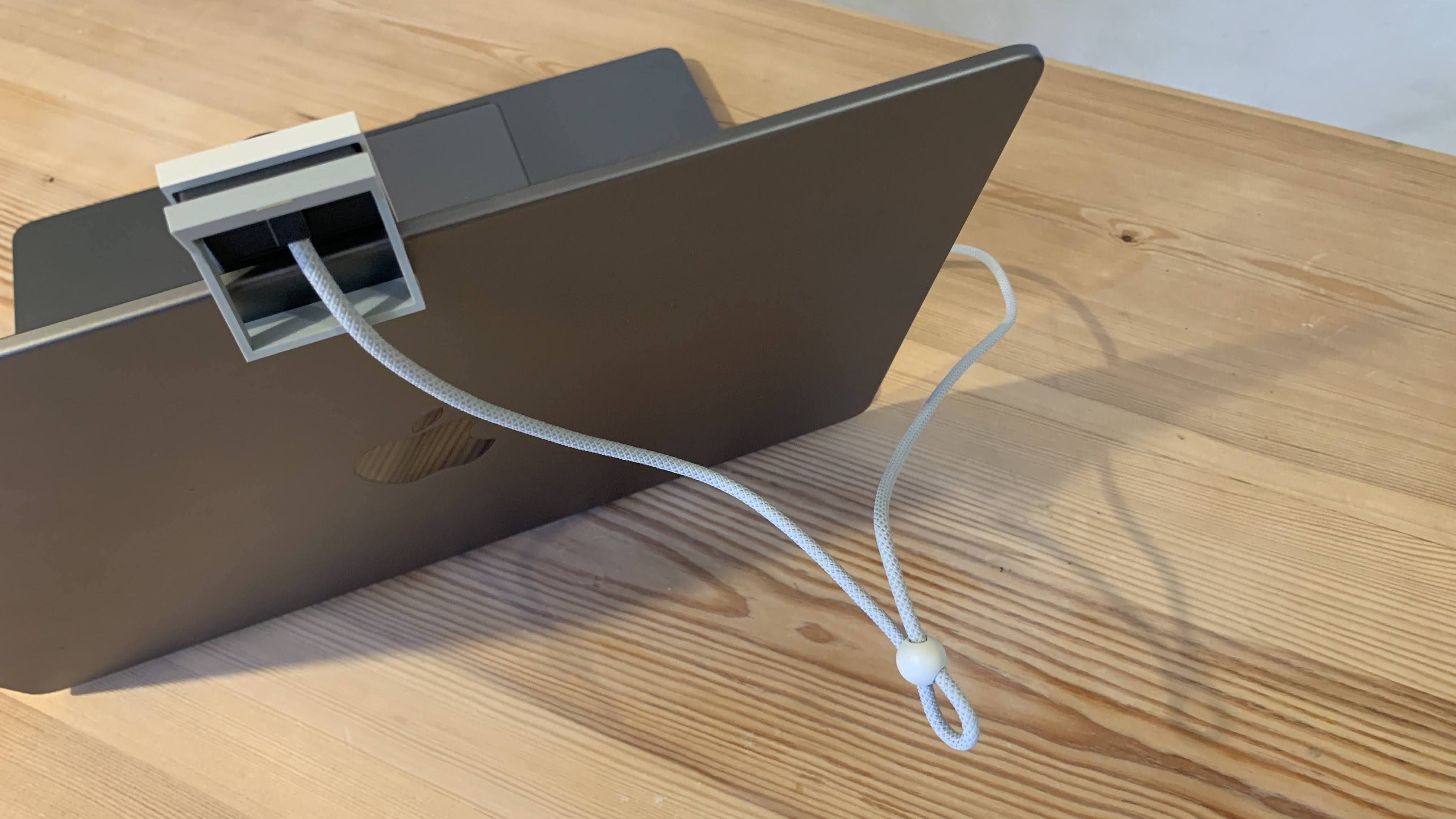
Moving away from the design and build quality, I’m sure you're interested in knowing about the camera itself. Generally, it’s pretty good, although not as good as the built-in webcam on my MacBook Pro 2023. As a result, I’ll inevitably stick with that, but that doesn’t mean there aren’t many people who would benefit from this type of webcam - after all, many laptops have sub-par 720p webcams or no webcam whatsoever.
The Sony IMX582 RS sensor does a fantastic job of producing clean video with minimal noise, even in the shadows. Color replication is strong, with vibrant colors chosen over and above a flat profile. The image therefore pops nicely, which is exactly what you want when appearing in front of others at a meeting or when video-calling your parents.
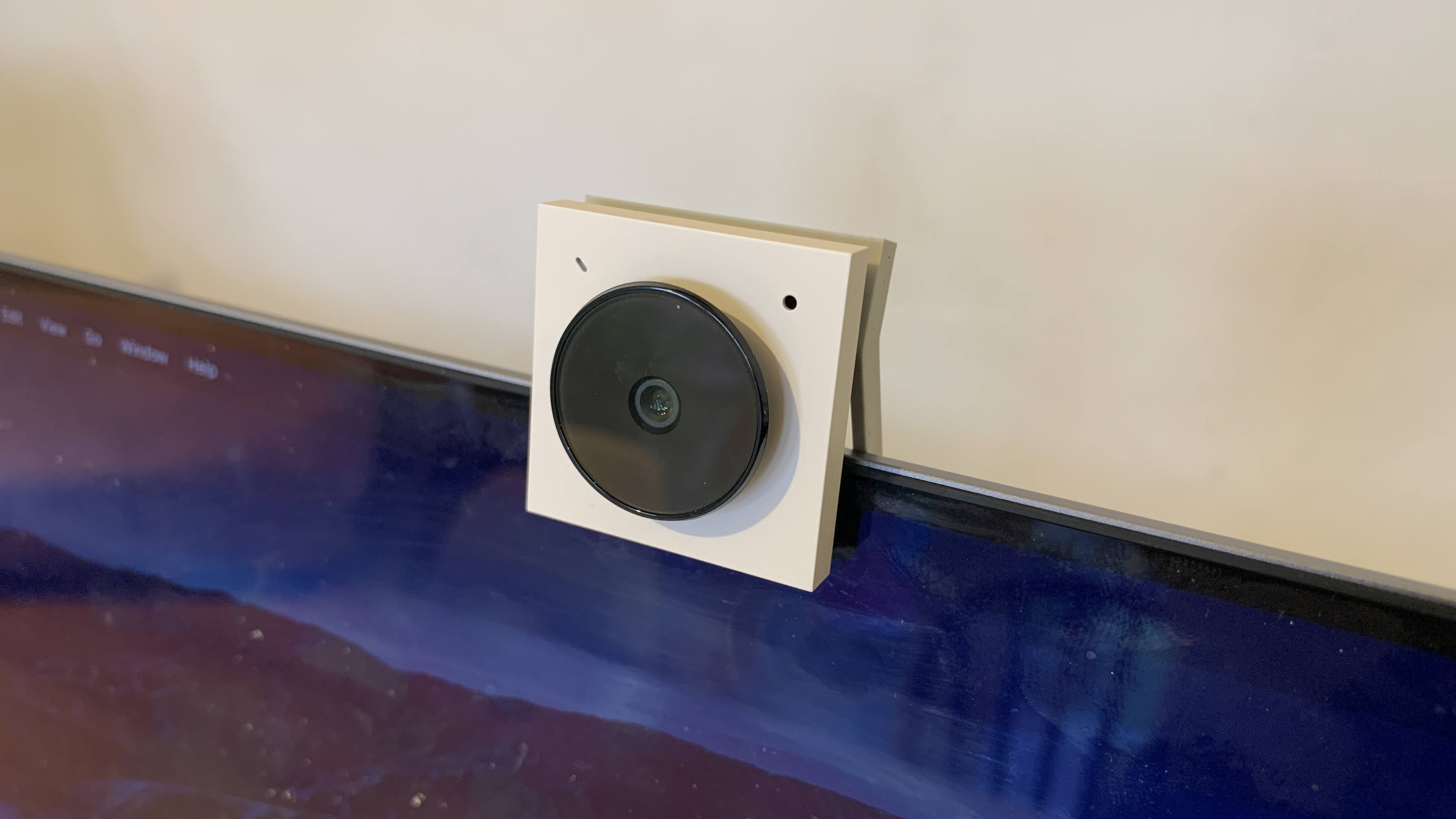
The f/1.8 lens is made up of six elements and is able to let in a significant amount of light, something that is particularly noticeable when using it in low light. Unfortunately, the dynamic range that is supported by the lens and its sensor is not quite wide enough. It was a real shame that during my meetings I had to put up with bright backgrounds, such as windows, that were almost completely blown out. It’s understandable that cameras like this would struggle here, but the Tadpole struggled more than I would have liked to see.
In terms of resolution, the 48 MP image is binned to 1080p, which is more than enough for most laptops. For most people, there is little point in spending more on a 4K webcam when it will make almost no difference to the visual experience - that territory is more for professional online content creators.
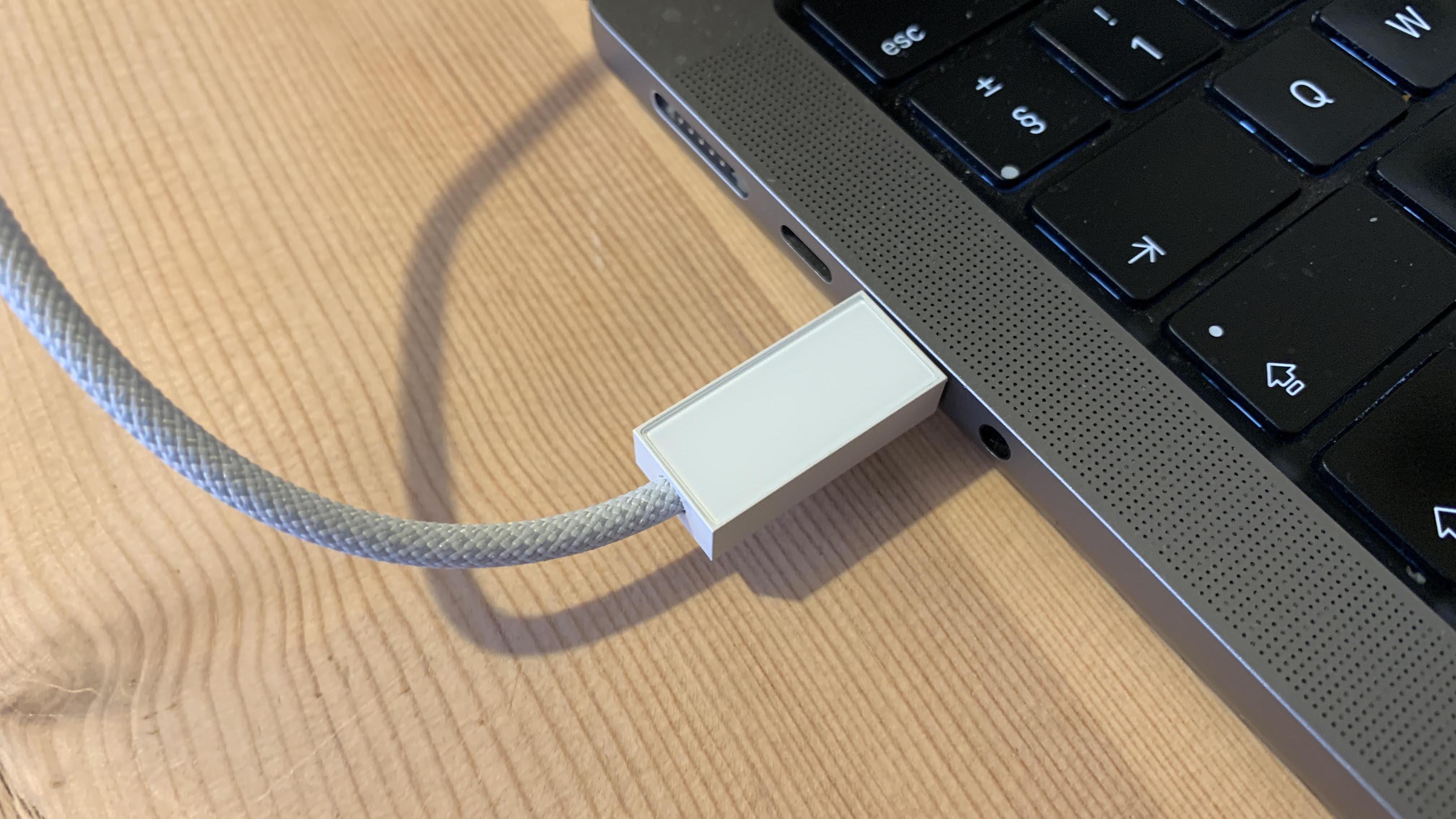
As important, if not more so, is the quality of the audio. One of the biggest challenges to providing good audio from a webcam is that they’re often omnidirectional and therefore pick up way too much background noise. Some webcams overcome this by using noise filtering, but Opal has landed on a completely different solution.
By using a directional microphone, the Tadpole captures only what is directly in front of the camera. The solution, in essence, creates a tunnel through which sound is funneled. As a result, any sound that doesn’t travel down this tunnel isn’t heard. It’s a genius little idea and puts the results in the hands of engineering rather than leaving it to programmers to work out.
This directional microphone does a pretty good job, with almost all low-to-medium level background noise removed. It didn’t work entirely in a crowded room but was certainly better than omnidirectional alternatives.
Another audio feature is the ability to mute calls with a single tap of the integrated capacitive button on the USB-C cable. This is a nice little feature to have, though I certainly wouldn’t buy the webcam because of it.
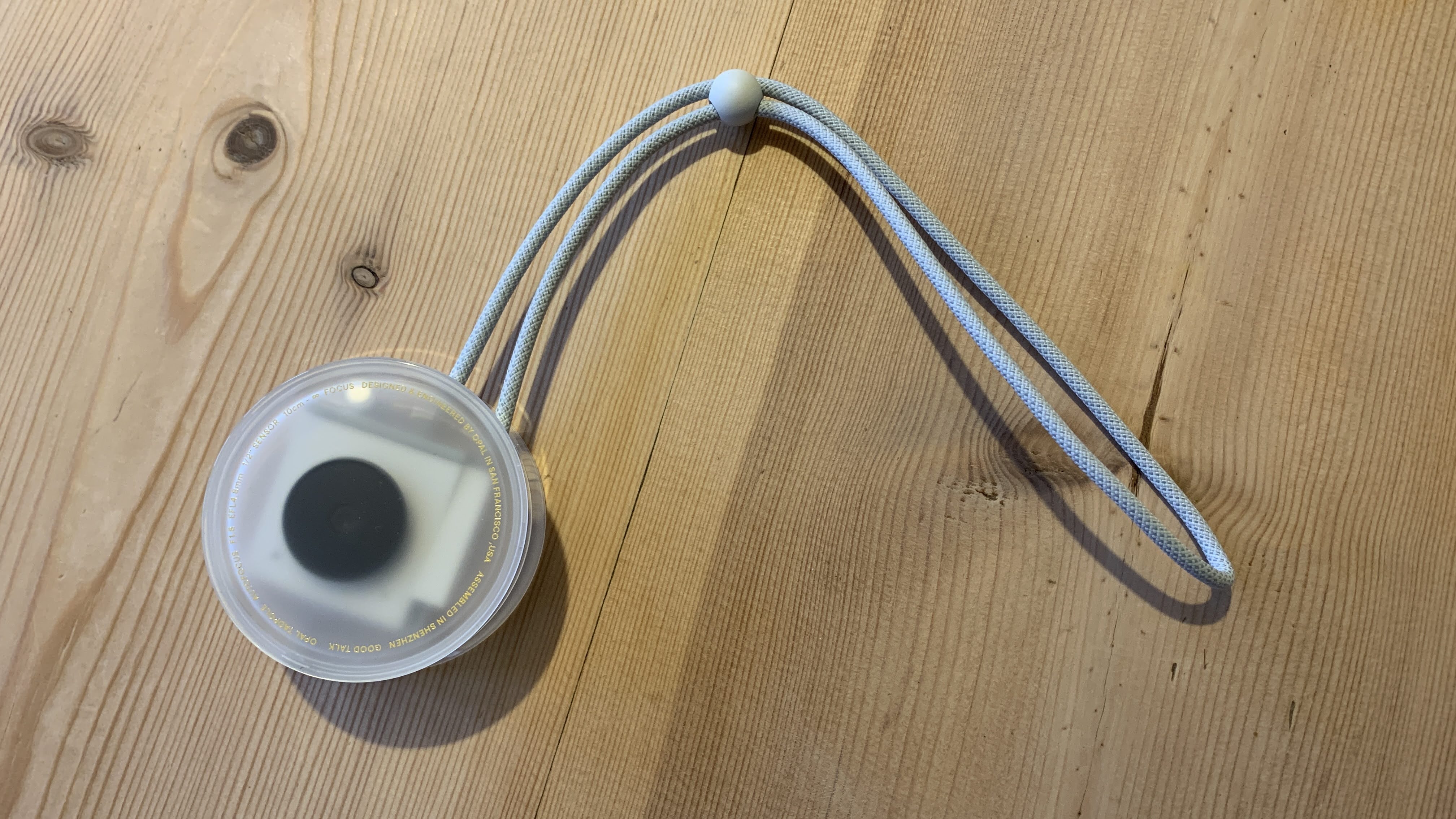
One of the biggest selling points of the Tadpole is its portability. It is small, lightweight, and packs neatly into a purpose-made carry case that looks like a yoyo. The case is built well and allows the cable to neatly protrude out the side, doubling up as a loop for carrying. Simply put, this is one of the best carry cases for a webcam that I’ve ever seen. The magnetic clip makes it quick and easy to take in and out, with just enough strength to ensure it doesn’t accidentally fall out.
The Opal Tadpole is one of the best options in the mid-range webcam space. It delivers better quality than the super-budget alternatives but lacks additional features that are seen in the more expensive and premium webcams. Video quality is more than good enough for most situations, although it does sometimes struggle to deal with bright light sources. The directional mic is a nice feature that does a good job of cutting out a reasonable amount of background noise. Overall, the Tadpole is a very capable webcam.
Opal Tadpole webcam: Price & availability
- How much does it cost? $129 (about £105 / AU$200)
- When is it available? Available now
- Where can you get it? US with worldwide shipping
At $129 (about £105 / AU$200), the Opal Tadpole sits in the middle between the super-budget Logitech HD Webcam C310 and the eye-wateringly pricy Elgato Facecam Pro. The former lacks good image quality and feels a bit cheap in the hand, whereas the latter delivers amazing 4K video at 60 fps - for a high price.
If you want to compare like for like in terms of price, then the Tadpole is only a little more expensive than the Logitech C920, which wins the status for 'best overall' webcam in our best webcams buying guide - though it lacks the unparalleled portability of the Tadpole.
For the asking price here, you get decent video quality and some nice features, including single-tap muting. If you're after something a little better than the cheapest options on the market, then the Opal Tadpole is a respectable choice.
The Opal Tadpole ships worldwide, with associated shipping costs. For the UK, that is set at an additional $8. The yo-yo case also costs an additional $19, but it's worth the price in my opinion.
- Value: 4 / 5
Opal Tadpole webcam: Specs
Should you buy the Opal Tadpole webcam?
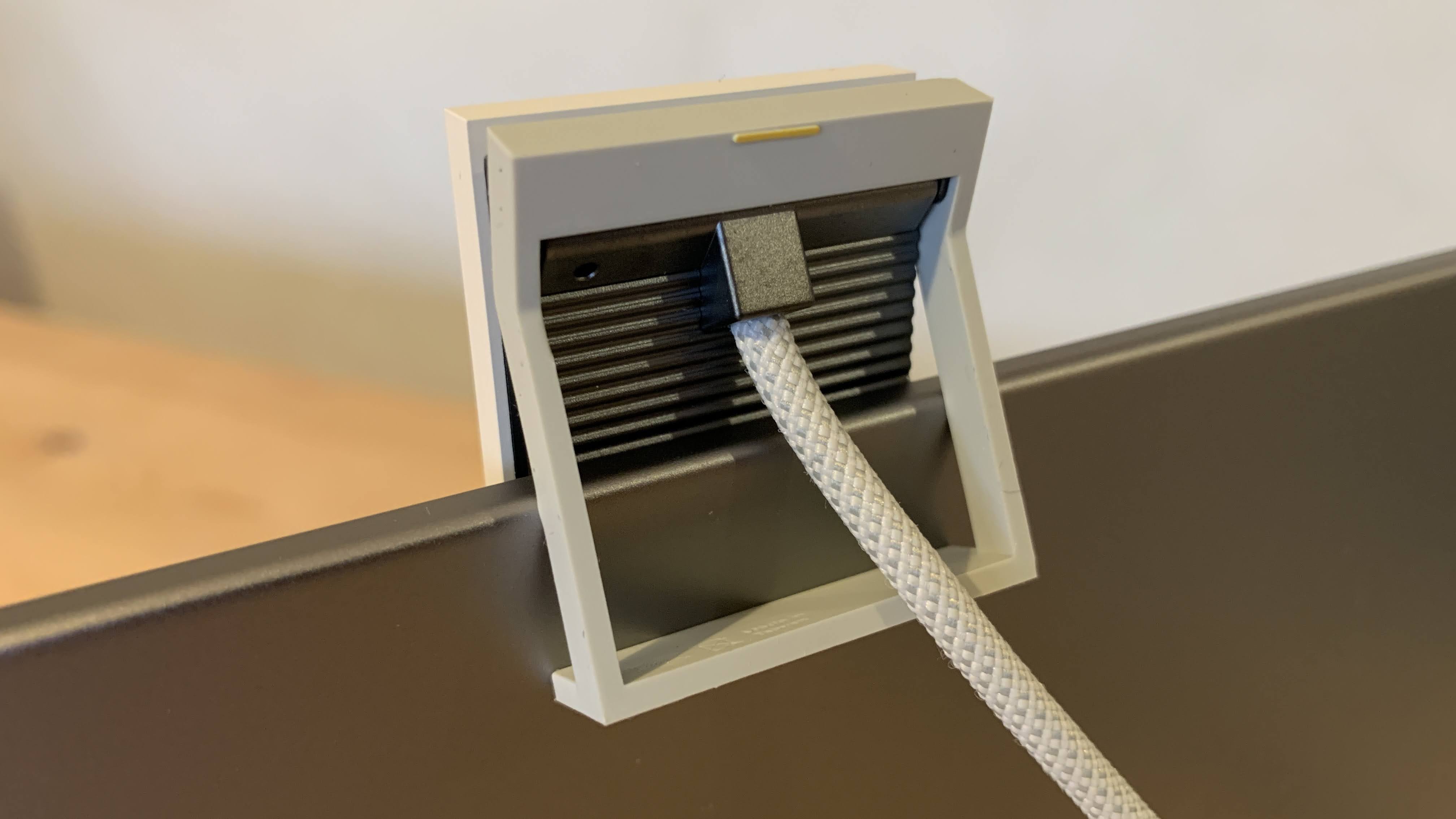
Buy it if...
Don't buy it if...
Opal Tadpole webcam: Also consider
How I tested the Opal Tadpole webcam
- I used the webcam for my video calls
- I tested its general performance as well as its special features
- I made sure to test it under a variety of lighting conditions
As soon as it came through the door, I was keen to get the Opal Tadpol webcam out of the box and hooked onto my laptop. Everything about the design and functionality oozes quality, so I wanted to get it setup as soon as I could.
After a few minutes of getting it up and running, I spent time in video calls to test it's many features. I also made sure to give it a good run around in different lighting conditions, including bright and low-lit rooms.
With a few neat features, I also checked those out so I could determine the degree to which I would use them on a regular basis. I also used the carry case to help me transport the webcam around.
First reviewed April 2024







